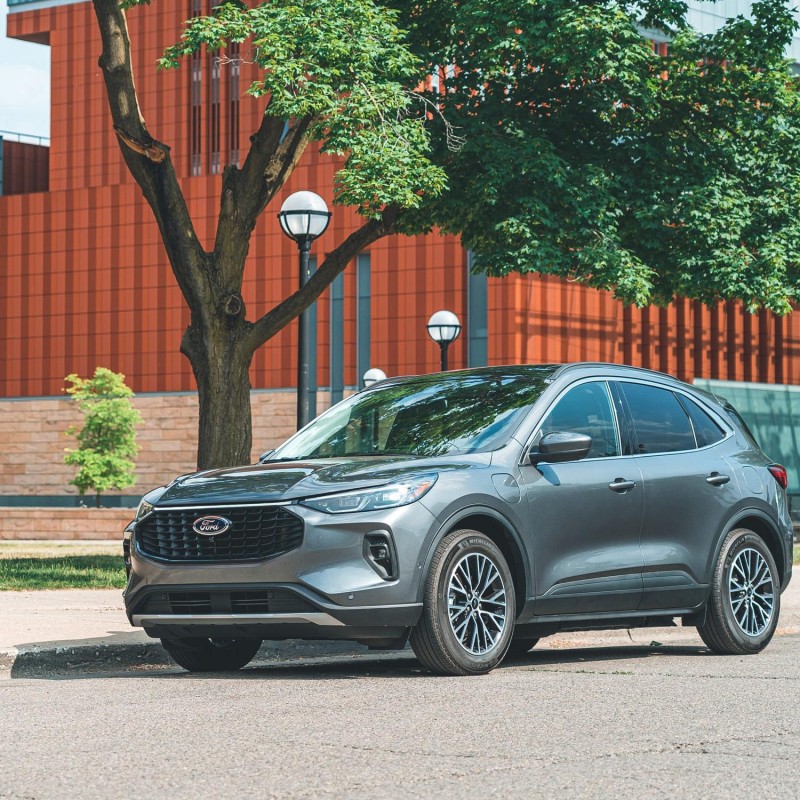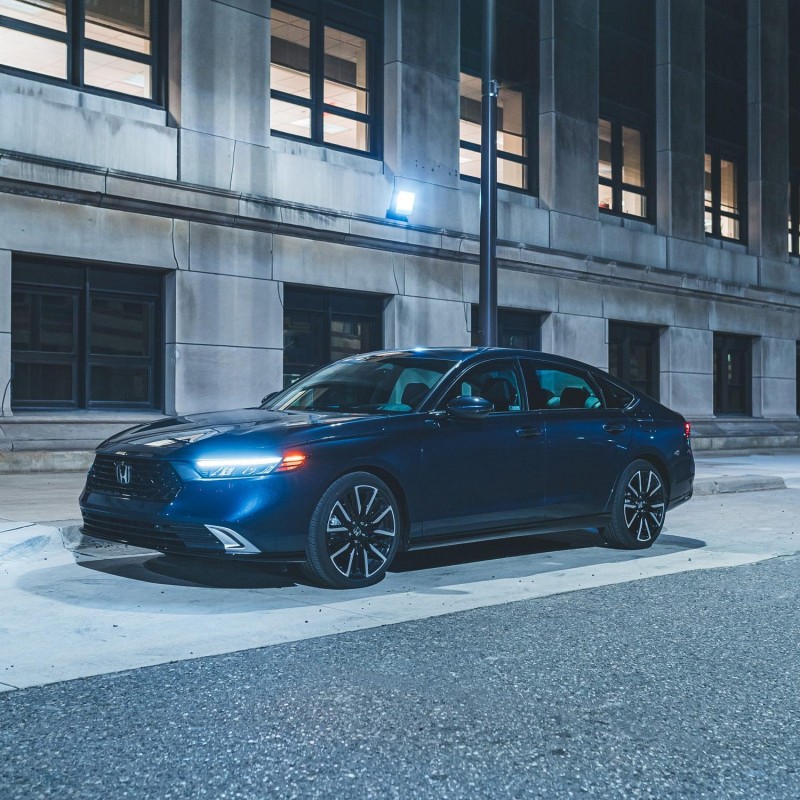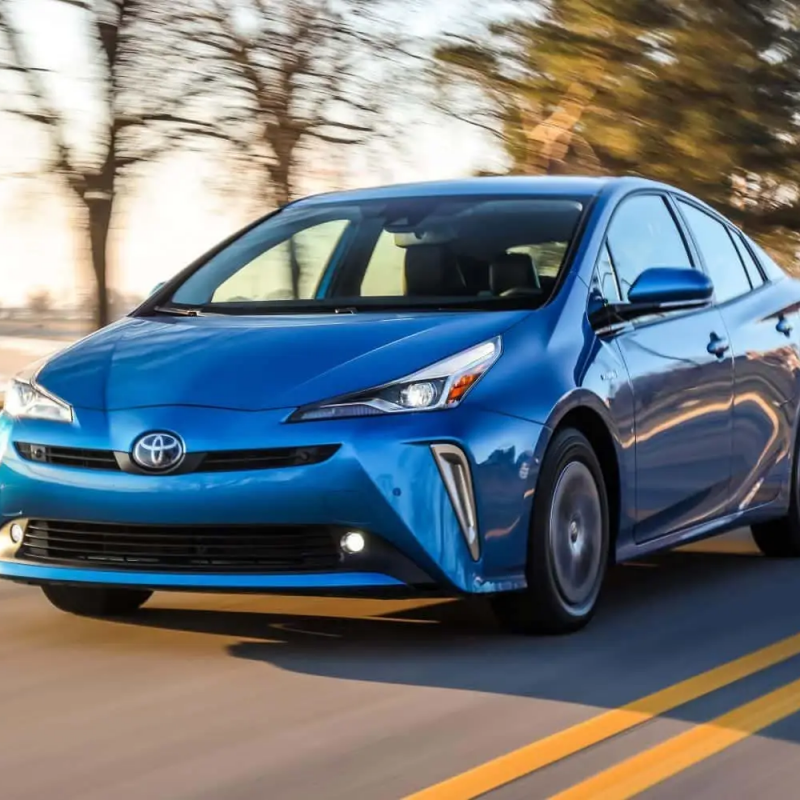Introduction
In today’s world, with longer commuting times becoming the norm for many adults, the need for fuel-efficient vehicles is more crucial than ever. Fuel-efficient hybrid vehicles for long commutes offer an excellent solution for those who want to save money on gas without sacrificing comfort or performance. These cars combine traditional gasoline engines with electric motors, resulting in improved fuel economy and reduced emissions. Whether you are driving through urban traffic, navigating highways, or simply looking to make a positive environmental impact, hybrid vehicles provide an appealing option. In this comprehensive guide, we will explore the benefits of fuel-efficient hybrid vehicles for long commutes, key features to consider when selecting a hybrid, popular models on the market today, and practical tips to maximize your commuting experience. Whether you seek a cheap alternative or a high-tech ride, this guide will help you make an informed decision.

Understanding Hybrid Vehicles
To appreciate the advantages of fuel-efficient hybrid vehicles for long commutes, it is essential to understand how they operate. Hybrid vehicles utilize a combination of a gasoline engine and one or more electric motors. This combination allows them to achieve better fuel efficiency compared to traditional gasoline-powered vehicles.
Hybrid vehicles can be categorized mainly into two types: full hybrids and plug-in hybrids.
- Full Hybrids: These vehicles can operate using only the electric motor, the gasoline engine, or a combination of both. They automatically switch between power sources depending on driving conditions, ensuring optimum fuel efficiency without requiring a charging station.
- Plug-in Hybrids: Unlike full hybrids, plug-in hybrids have larger batteries that can be charged from an external power source. They offer a longer electric-only range before switching to gasoline power, making them suitable for short commutes without relying heavily on fuel.
Benefits of Hybrid Vehicles
Hybrid vehicles hold numerous benefits for long commutes. By integrating advanced technology with environmentally friendly practices, these vehicles make a significant impact on both fuel savings and emissions reduction. Here are some of the primary benefits:
- Improved Fuel Economy: One of the most appealing aspects of hybrid vehicles is their fuel efficiency. Many hybrids can achieve miles per gallon (MPG) ratings significantly higher than their non-hybrid counterparts. This enhanced efficiency translates to reduced fuel costs over time, making them a smart option for daily commuters.
- Lower Emissions: Hybrid vehicles produce fewer harmful emissions compared to traditional vehicles. This reduction contributes positively to air quality, which is crucial in urban environments where pollution levels can be high.
- Tax Incentives: Many governments offer tax incentives and rebates for hybrid vehicle owners. These can help offset the initial purchase price, making a hybrid vehicle a financially smart decision.
- Quiet Operation: Hybrid vehicles are often quieter than regular gasoline vehicles, especially when running on electric power. This quietness contributes to a more pleasant driving experience, particularly during early morning or late-night commutes.
Key Features to Look for in a Hybrid Vehicle
When selecting a hybrid vehicle for long commutes, various key features should be prioritized. Understanding these features will help you make a more informed choice that fits your commuting needs:
Fuel Efficiency Ratings
The fuel efficiency of a hybrid vehicle is typically measured in miles per gallon (MPG). When evaluating models, compare their highway and city MPG ratings, as these can significantly impact overall fuel savings during long commutes. Consider vehicles that offer high MPG ratings for both cycles to maximize efficiency.

Comfort and Space
Long commutes require a comfortable driving environment. Evaluate the seating comfort, legroom, and headspace within the vehicle. A spacious interior allows for a more enjoyable driving experience, especially during daily traffic jams.
Advanced Technology
Modern hybrid vehicles come equipped with advanced technology features that enhance safety and driving comfort. Look for options with integrated navigation systems, advanced driver-assistance systems, smartphone connectivity, and entertainment options.
Reliability and Warranty
Reliability should be a primary focus when choosing a hybrid vehicle. Research the long-term reliability ratings of various models and check for available warranties. A good warranty can provide peace of mind and save money on repairs down the line.
Maintenance Costs
While hybrid vehicles generally experience lower fuel costs, it is essential to evaluate maintenance costs. Regular maintenance is crucial for maintaining fuel efficiency, so consider models that are known for their low upkeep expenses.
Driving Modes
Some hybrids offer different driving modes that allow drivers to customize their experience. This may include electric-only mode, economic driving mode, or performance mode. Being able to switch between modes can tailor the vehicle to your preferences, which can be particularly useful for long journeys or urban commutes.
Popular Fuel-Efficient Hybrid Vehicles for Long Commutes
Several outstanding fuel-efficient hybrid vehicles on the market are well-suited for long commutes. Below are some popular models known for their reliability, comfort, and impressive fuel efficiency:
Toyota Prius
The Toyota Prius has long been recognized as a leader in the hybrid vehicle market. Known for its fuel efficiency and reliability, the Prius offers an impressive EPA rating averaging around 56 MPG combined. With ample trunk space and a comfortable interior, it’s an excellent choice for daily commuters.
Honda Accord Hybrid
The Honda Accord Hybrid combines a spacious interior with a sophisticated hybrid system, resulting in an average of 48 MPG. The Accord’s reputation for reliability and comfort makes it a top choice for adults seeking a well-rounded hybrid vehicle suitable for long drives.
Ford Escape Hybrid
The Ford Escape Hybrid offers an engaging driving experience along with its spacious interior and cargo capacity. It achieves approximately 40-41 MPG combined, making it an economical option for commuting. Its versatility and high ground clearance make it equally suitable for weekend adventures.
Kia Niro
The Kia Niro is a compact hybrid that scores high on style and efficiency. With EPA ratings of up to 50 MPG and a range of tech-friendly features, it appeals to commuters looking for a modern vehicle. Its hatchback design also maximizes cargo space for weekend trips.
Toyota RAV4 Hybrid
For those who prioritize SUV capabilities, the Toyota RAV4 Hybrid strikes an excellent balance between efficiency and utility. With an average of around 40 MPG combined, it also offers a spacious interior and ample cargo room. The RAV4 Hybrid is ideal for long commutes while still being ready for family adventures.
Tips for Maximizing Fuel Efficiency in Hybrid Vehicles
In addition to choosing the right hybrid vehicle, adopting certain driving habits can enhance fuel efficiency. Here are some tips to help you maximize the benefits of your fuel-efficient hybrid vehicle for long commutes:
Smooth Acceleration and Braking
Gradual acceleration reduces fuel consumption and creates a smoother driving experience. Similarly, avoid sudden braking; instead, anticipate stops to enhance braking efficiency through regenerative braking systems, which help recharge the battery.
Maintain Optimal Tire Pressure
Regularly check your tire pressure, as under-inflated tires lead to reduced fuel efficiency. Ensuring that your tires are properly inflated can boost mileage and improve vehicle handling.
Limit Use of Air Conditioning
While air conditioning can enhance comfort, using it excessively can drain fuel efficiency. Try to utilize the air conditioning system sparingly, especially during the initial stages of your journey when the vehicle is consuming more energy.
Use Eco-Mode Driving Settings
Many hybrid vehicles come equipped with an eco-mode driving option that enhances fuel efficiency. Use this setting to optimize your engine performance and conserve fuel during long commutes.
Plan Efficient Routes
Incorporate route-planning tools or apps to find the most fuel-efficient routes. Avoid heavily congested areas whenever possible, as driving in traffic can significantly impact fuel consumption.

Conclusion
Choosing a fuel-efficient hybrid vehicle for long commutes is a wise investment for anyone seeking to maximize fuel savings while remaining comfortable on the road. With numerous options available, understanding key features such as fuel efficiency ratings, comfort, and advanced technology is essential in making the right choice.
The benefits of hybrid vehicles—ranging from lower emissions to government incentives—make them an attractive option for environmentally conscious consumers. Models like the Toyota Prius, Honda Accord Hybrid, Ford Escape Hybrid, Kia Niro, and Toyota RAV4 Hybrid stand out as excellent choices for drivers seeking efficiency without sacrificing comfort or style.
By incorporating effective driving habits and insights into maximizing fuel efficiency, commuters can get the most out of their hybrid vehicles. Whether you’re navigating congested urban areas or enjoying long stretches of highway, the right hybrid vehicle will enhance your daily commute and contribute positively to the environment.
Embracing a fuel-efficient hybrid vehicle for long commutes is not just a choice for today; it’s a step toward a sustainable future. With careful planning and thoughtful consideration, you can embark on your daily journeys with confidence, knowing that you’re making a responsible choice for yourself and the planet.